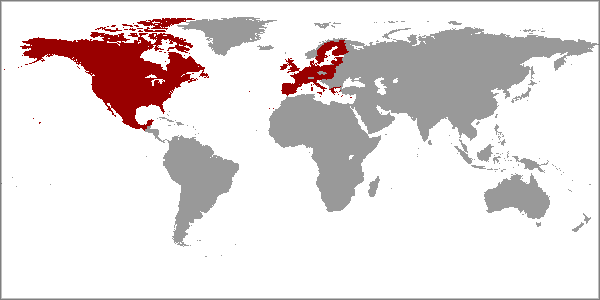Boing Boing pointed me to Kevin Kelly and Brian Eno’s “Unthinkable Futures” list, which included a disaster scenario that fired some neurons (it’s Saturday morning before ten, this is unusual):
People begin leaving the U.S. Many arrivals to the US keep resident status but choose not to adopt citizenship. The world sees more people without allegiance.
Whenever people ask me “where are you from?” I’ve always had difficulty answering the question. I was born in Australia, grew up in Canada, and hold Irish citizenship and US Permanent Residence status. Technically, I’m from somewhere around 30 countries.
I’ve always viewed multi-citizenship as an imperitive in an increasingly interconnected world. The ability to easily move and work in another country has always struck me as a logical complement to my highly transportable skill set as an engineer. While international treaties, such as NAFTA, typically simplify the process of moving between countries for highly-skilled workers, citizenship reduces the complexity even further.
In fact, one might even view citizenship as a new asset class. Not only is it an easily transportable asset, but it also can be passed on to descendants in most cases. When Ashley and I have kids, they could have as many as four citizenships: Canadian, Irish, Australian, and US.
That said, I, as many others, are wary of US citizenship. The primary reason for this fear is the draconian US tax law, which demands its citizens file taxes on their world income regardless of whether they are in the country or not. The US always wants its share in exchange for the benefit of citizenship. Other countries, in contrast, generally don’t require you to file taxes unless you’re actually in the country for a significant portion of the year.
I could see this becoming a liability for the US, leading to the outcome that Kevin Kelly and Brian Eno predict. US citizenship is only an asset so long as the US is a highly desirable labour market, and supports a high quality of life. In the absence of those attributes, the asset of citizenship is outweighed by the liability of onerous over-taxation.
Of course, in the long-term this hopefully becomes a non-issue as international borders and nation-states become increasingly irrelevant. Maybe.

